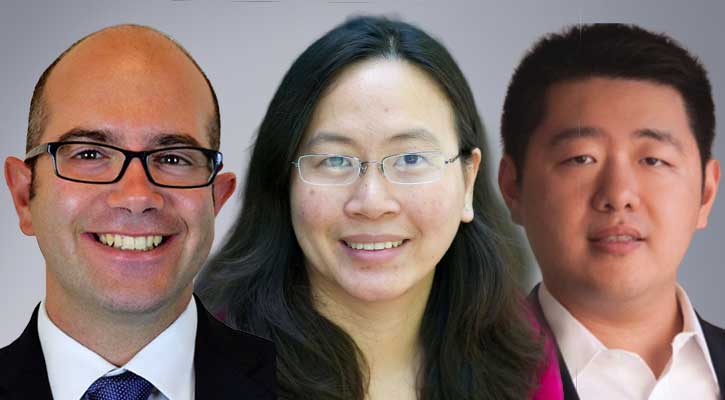Strengthening AI For Critical Edge Applications

ECE Professor Stratis Ioannidis, ECE/Khoury Distinguished Professor Jennifer Dy, and ECE Professor Yanzhi Wang, in collaboration with Kaushik Chowdhury from the University of Texas at Austin, were awarded a $1,100,000 NSF grant for “Robust Machine Learning at the Edge.”
Abstract Source: NSF
Many safety-critical applications depend on the robustness of machine learning (ML) algorithms, i.e., their ability to make good predictions when exposed to previously unseen inputs. These safety-critical applications, such as autonomous vehicles, medical applications, wireless networks, and smart cities, often involve “edge devices” such as phones, sensors, and Internet-of-Things devices (e.g., wearable and smart home technology). These edge devices have computational, storage, and power limitations that raise new challenges for machine learning robustness against attack. These limitations make it hard to use common methods designed to make ML algorithms more robust against attackers, such as, previously unseen input designed to confuse the algorithms. Previous techniques designed to address these limitations, such as simplifying ML models to make them smaller, may also harm robustness. This project will develop new algorithmic techniques that achieve favorable tradeoffs between the robustness of machine learning algorithms and compression, thereby enabling the deployment of robust machine learning algorithms at the edge.
The project team will design new robustness-enhancing training regularization penalties and adversarial training techniques, and will apply them to last-generation, large-scale transformer architectures fine-tuned to new tasks. It will also combine them with model compression techniques such as pruning, quantization, distillation, and neural architecture search, to enable robustness at the edge, and with continual learning approaches, to enable dynamic adaptation. These approaches will be tested and evaluated on large foundation models and applications of machine learning over wireless signals. Graduate and undergraduate students will be trained and acquire skills in diverse areas including machine learning, networking, and systems, while the research activities will be integrated with both educational and outreach programs in the researcher team’s host institutions.